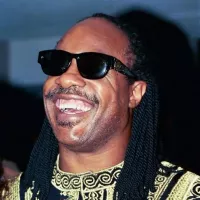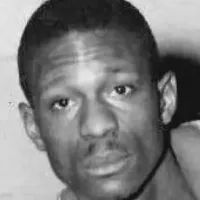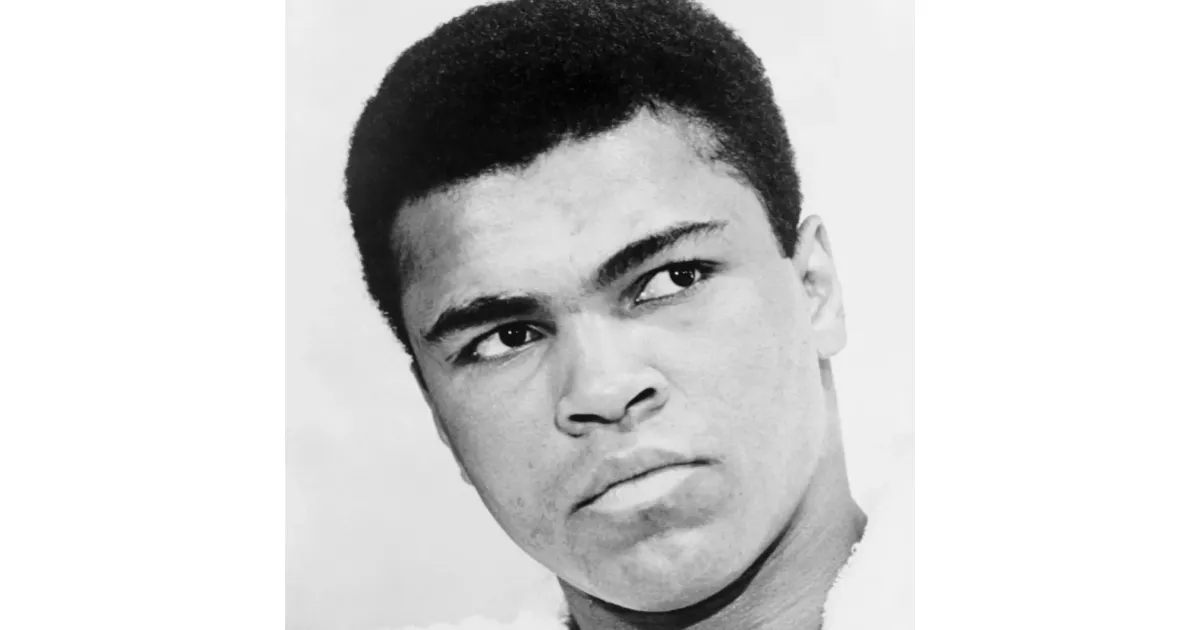A closer look at the lasting mark left by Muhammad Ali—a timeline of influence.
Muhammad Ali, nicknamed "The Greatest," was an iconic American professional boxer and social activist, widely considered the greatest heavyweight boxer ever. He held multiple titles, including the Ring magazine heavyweight title (1964-1970), undisputed champion (1974-1978), and WBA and Ring heavyweight champion (1978-1979). His impact extended beyond boxing, making him a global cultural icon. He was named Sportsman of the Century by Sports Illustrated and Sports Personality of the Century by the BBC in 1999.
1961: Meeting with Gorgeous George
In 1961, Cassius Clay met with professional wrestler "Gorgeous George" Wagner in Las Vegas. George influenced Clay to use trash talk to attract fans, leading Clay to become a "big-mouth and a bragger."
1963: First appeared on Sports Illustrated cover
In 1963, Ali first appeared on the cover of Sports Illustrated magazine.
1966: Popularized "Different strokes for different folks"
In 1966, Ali popularized the quote "Different strokes for different folks", which later inspired the title of the 1967 Syl Johnson song "Different Strokes".
June 4, 1967: "Cleveland Summit" Support for Ali
On June 4, 1967, a group of high-profile African-American athletes, including Jim Brown, Bill Russell, and Kareem Abdul-Jabbar, assembled with Ali at the Negro Industrial Economic Union in Cleveland for the "Cleveland Summit" to support Ali regarding his convictions.
1967: Syl Johnson song "Different Strokes" released
In 1967, Ali inspired the title of the Syl Johnson song "Different Strokes", which became one of the most sampled songs in pop music history.
1968: Paved the way for The Last Poets
In 1968, Ali played a role in the shaping of the black poetic tradition, paving the way for The Last Poets.
1969: Inspiration from Gorgeous George
In a 1969 interview, Muhammad Ali stated that he met with professional wrestler "Gorgeous George" Wagner in Las Vegas in 1961. George told him that trash talk would earn him fans who either wanted to see him win or lose, so Clay transformed himself into a self-described "big-mouth and a bragger."
1970: Paved the way for Gil Scott-Heron
In 1970, Ali played a role in the shaping of the black poetic tradition, paving the way for Gil Scott-Heron.
1970: Ali Honored with Martin Luther King Award
In 1970, Muhammad Ali was honored with the annual Martin Luther King Award by Ralph Abernathy, who recognized him as a "living example of soul power", with Coretta Scott King adding that Ali was "a champion of justice and peace and unity".
1971: Fight of the Century and FBI Burglary
In 1971, the anticipation for Ali's "Fight of the Century" with Frazier was used by the Citizens' Commission to Investigate the FBI to pull off a burglary at an FBI office, exposing the COINTELPRO operations that included illegal spying on activists involved with the civil rights and anti-war movements, including Ali.
1974: Television Viewership Records
From 1974, Muhammad Ali's fights were some of the world's most-watched television broadcasts, setting television viewership records.
1974: World Champion Boxer
In 1974, Ali was the subject of numerous creative works including books, films, music, video games, and TV shows. Several of his fights were watched by an estimated 1–2 billion viewers between 1974 and 1980.
1975: Construction began on Ali Mall
In 1975, construction of Ali Mall in Araneta Center, Quezon City, Philippines, began shortly after his victory in a match with Joe Frazier in nearby Araneta Coliseum.
1976: Ali Mall opened in the Philippines
In 1976, Ali Mall, located in Araneta Center, Quezon City, Philippines, opened and was named after Ali.
December 1977: Birth of Laila Ali
In December 1977, Muhammad Ali and Veronica Porché had their second daughter, Laila Ali, who later became a professional boxer.
1978: Subject of British television program This Is Your Life
In 1978, Ali was the subject of the British television program This Is Your Life when he was surprised by Eamonn Andrews. Ali was also featured in Superman vs. Muhammad Ali, a 1978 DC Comics comic book pitting the champ against the superhero.
1978: Received accolades in Louisville
In 1978, shortly after becoming heavyweight champion of the world for the third time, and three years before his permanent retirement, Ali received a round of accolades in his hometown of Louisville. In September 1978, at a tribute ceremony held at Fairgrounds Stadium, then-Governor of Kentucky Julian Carroll proclaimed 1978 the "Year of Ali" and presented to Ali the Governor's Distinguished Service Award. In November 1978, the Louisville Board of Aldermen voted to rename downtown thoroughfare Walnut Street to Muhammad Ali Boulevard.
1979: Guest starred in an episode of Diff'rent Strokes
In 1979, Ali guest starred as himself in an episode of the NBC sitcom Diff'rent Strokes.
1980: World Champion Boxer
In 1980, Ali was the subject of numerous creative works including books, films, music, video games, and TV shows. Several of his fights were watched by an estimated 1–2 billion viewers between 1974 and 1980.
1980: Television Viewership Records
Until 1980, Muhammad Ali's fights were some of the world's most-watched television broadcasts, setting television viewership records.
1981: Retirement from Boxing
In 1981, Muhammad Ali retired from professional boxing. Following his retirement, he dedicated his time to religion, philanthropy, and activism.
1987: Selected to personify U.S. Constitution
In 1987, the California Bicentennial Foundation for the U.S. Constitution selected Ali to personify the vitality of the U.S. Constitution and Bill of Rights.
1990: Named one of the 100 most influential Americans
In 1990, Ali was named one of the 100 most influential Americans of the 20th century by Life magazine.
1991: Release of Biography Muhammad Ali: His Life and Times
In 1991, the oral history biography, Muhammad Ali: His Life and Times, by Thomas Hauser was released.
1992: Incorporation of G.O.A.T. Inc.
In 1992, Lonnie Williams incorporated Greatest of All Time, Inc. (G.O.A.T. Inc) to manage and license Muhammad Ali's intellectual properties for commercial use, serving as vice president and treasurer.
1993: Pancrase founded
In 1993, Masakatsu Funaki and Minoru Suzuki, inspired by the Muhammad Ali vs. Antonio Inoki fight, founded Pancrase.
1993: Most Recognized Athlete
In 1993, the Associated Press reported that Ali was tied with Babe Ruth as the most recognized athlete in America, out of over 800 athletes.
1995: Sports Diplomacy Mission to North Korea
In 1995, Ali led a group of Japanese and American professional wrestlers, including his 1976 opponent Antonio Inoki, on a sports diplomacy mission to North Korea and was guest of honor at the Collision in Korea wrestling event.
1996: Lit the flame at the 1996 Summer Olympics
In 1996, Ali lit the flame at the 1996 Summer Olympics in Atlanta, Georgia. This event was watched by an estimated 3.5 billion viewers worldwide.
1996: Lighting of the torch at the Atlanta Olympics
In 1996, Ali's lighting of the torch at the Atlanta Olympics was watched by an estimated 3.5 billion viewers.
1996: Replacement Medal and Olympic Torch Lighting
In 1996, Muhammad Ali received a replacement gold medal at the Georgia Dome during the Olympics in Atlanta. He also had the honor of lighting the torch to start the Games.
1996: When We Were Kings wins Academy Award
In 1996, the documentary When We Were Kings, about the Rumble in the Jungle, won the Academy Award for Best Documentary Feature.
1997: Pride Fighting Championships founded
In 1997, Pride Fighting Championships was founded inspired by Pancrase.
1998: Birth of Biaggio Ali Walsh
In 1998, Biaggio Ali Walsh, grandson of Muhammad Ali and son of Rasheda Ali Walsh, was born. He is an amateur MMA fighter.
1999: Time Magazine's 100 Most Important People
In 1999, Ali was named in Time magazine's list of the 100 Most Important People of the 20th Century, alongside Pelé and Jackie Robinson.
1999: Laila Ali Becomes a Boxer
In 1999, Laila Ali, Muhammad Ali's daughter, started her career as a professional boxer.
1999: Muhammad Ali Boxing Reform Act Introduced
In 1999, The Muhammad Ali Boxing Reform Act was introduced in United States.
2000: Birth of Nico Ali Walsh
In 2000, Nico Ali Walsh, grandson of Muhammad Ali and son of Rasheda Ali Walsh, was born. He is a professional boxer.
2000: Muhammad Ali Boxing Reform Act Passed
In 2000, The Muhammad Ali Boxing Reform Act passed to protect the rights and welfare of boxers in the United States.
2001: Response to September 11 Attacks
After the September 11 attacks in 2001, Ali stated that "Islam is a religion of peace" and condemned the actions of those who caused the destruction.
2001: Promoted biopic and contributed to tribute concert
In 2001, Ali promoted his own biopic, Ali, and also contributed an on-camera segment to the America: A Tribute to Heroes benefit concert.
2001: Will Smith's Oscar Nomination for Ali
In 2001, Will Smith received a Best Actor Oscar nomination for his portrayal of Ali in the biopic Ali.
2002: Honored with a star on the Hollywood Walk of Fame
In 2002, Ali was honored with a star on the Hollywood Walk of Fame for his contributions to the entertainment industry. His star is mounted on a vertical surface.
2003: Release of the documentary film The Last Round: Chuvalo vs. Ali
In 2003, The Last Round: Chuvalo vs. Ali, a documentary about Ali's 1966 fight against George Chuvalo, was released.
November 2005: Opened the Muhammad Ali Center in Louisville
In November 2005, Ali and his wife Lonnie Ali opened the $54 million, 93,000 ft, non-profit Muhammad Ali Center in downtown Louisville. The center focuses on core themes of peace, social responsibility, respect, and personal growth.
2006: Sale of G.O.A.T. Inc.
In 2006, Greatest of All Time, Inc. (G.O.A.T. Inc), managed by Lonnie Williams, was sold.
2006: ESPN produced documentary Ali Rap
In 2006, the documentary Ali Rap was produced by ESPN, with Chuck D of Public Enemy as the host. Other rappers narrated the documentary as well, including Doug E Fresh, Ludacris and Rakim who all spoke on Ali's behalf in the film.
2007: Laila Ali Retires From Boxing
In 2007, Laila Ali, Muhammad Ali's daughter, retired from professional boxing.
2007: UFC acquired Pride
In 2007, Ultimate Fighting Championship acquired Pride Fighting Championships.
2008: Sports Illustrated created the Sportsman Legacy Award
In 2008, Sports Illustrated originally created the Sportsman Legacy Award which was renamed to the Sports Illustrated's Muhammad Ali Legacy Award in 2015.
July 27, 2012: Bearer of Olympic flag and awarded Philadelphia Liberty Medal
On July 27, 2012, Ali was a titular bearer of the Olympic flag during the opening ceremonies of the 2012 Summer Olympics in London. The same year, he was awarded the Philadelphia Liberty Medal in recognition of his lifelong efforts in activism, philanthropy and humanitarianism.
August 2013: The Trials of Muhammad Ali documentary opened in Manhattan
In August 2013, The Trials of Muhammad Ali, a documentary focusing on Ali's refusal of the draft during the Vietnam War, opened in Manhattan. Also in 2013, a made-for-TV movie titled Muhammad Ali's Greatest Fight dramatized the same aspect of Ali's life.
2013: The Trials of Muhammad Ali Documentary Released
In 2013, the documentary "The Trials of Muhammad Ali" was released, covering Ali's resistance to the draft.
December 2015: Response to Paris Attacks
In December 2015, after the November 2015 Paris attacks, Ali condemned the violence of so-called Islamic jihadists and urged Muslims to stand up against those who use Islam for their personal agenda.
2015: Sports Illustrated renamed its Legacy Award after Muhammad Ali
In 2015, Sports Illustrated renamed its Sportsman Legacy Award to the Sports Illustrated's Muhammad Ali Legacy Award.
2015: Recognizable Athletes in the United States
In 2015, a Harris Poll found that Ali was one of the three most recognizable athletes in the United States, along with Michael Jordan and Babe Ruth.
May 2016: Bill introduced to extend the Ali Act to MMA
In May 2016, a bill was introduced to United States Congress by Markwayne Mullin to extend the Ali Act to mixed martial arts.
June 3, 2016: Muhammad Ali's Death
On June 3, 2016, Muhammad Ali, the celebrated boxer and social activist, passed away, leaving behind a legacy as a global cultural icon and one of the greatest heavyweight boxers of all time.
June 9, 2016: Islamic Janazah prayer service
On June 9, 2016, Ali's funeral services began in Louisville with an Islamic Janazah prayer service at Freedom Hall. The Janazah prayer was attended by Turkish President Recep Tayyip Erdoğan.
June 10, 2016: Funeral procession and public memorial service
On June 10, 2016, Ali's funeral procession passed through the streets of Louisville ending at Cave Hill Cemetery, where his body was interred during a private ceremony. A public memorial service for Ali at downtown Louisville's KFC Yum! Center was held during the afternoon of June 10. The memorial was watched by an estimated 1 billion viewers worldwide.
June 2016: Proposed amendment to US draft laws named after Ali
In June 2016, US senator Rand Paul proposed an amendment to the US draft laws named after Ali, a proposal to eliminate the Selective Service System.
2016: Estimated net worth after death
Following his death in 2016, Ali's fortune was estimated to be between $50 million and $80 million.
2016: Bob Arum Reflects on Ali's Impact
In 2016, Bob Arum stated that Muhammad Ali's boxing exploits paled in comparison to the impact that he had on the world and realized that Ali was right for objecting the war and he was wrong for disagreeing with him at the time.
2016: Society of Voice Arts and Sciences created the Muhammad Ali Voice of Humanity Honor
In 2016, The Society of Voice Arts and Sciences created the Muhammad Ali Voice of Humanity Honor, which is presented at its annual Voice Arts Awards. The award was created in collaboration with the Muhammad Ali Center and is presented to "an individual whose voice, through humanitarianism, activism or personal sacrifice, has made a decidedly positive impact on our national or global condition as a society".
2016: Ken Burns started developing Muhammad Ali docuseries
In early 2016, Ken Burns began developing the four-part docuseries Muhammad Ali, which was later released in September 2021.
January 2017: Muhammad Ali Commemorative Coin Act introduced
In January 2017, the Muhammad Ali Commemorative Coin Act was introduced into the 115th Congress but was not enacted.
January 16, 2019: Louisville airport renamed in honor of Ali
On January 16, 2019, the Louisville Regional Airport Authority voted to change the name of the city's main airport to "Louisville Muhammad Ali International Airport" in honor of Ali.
June 6, 2019: Airport unveils new logo
On June 6, 2019, the airport unveiled its new logo, featuring "Ali's silhouette, arms up and victorious, against the background of a butterfly."
2019: Release of Antoine Fuqua's documentary What's My Name: Muhammad Ali
In 2019, Antoine Fuqua's documentary What's My Name: Muhammad Ali was released.
September 2021: Release of Ken Burns' Muhammad Ali docuseries
In September 2021, documentary filmmaker Ken Burns released the four-part docuseries Muhammad Ali, spanning over eight hours, on Ali's life. The series was broadcast on PBS.
October 2021: Auction of Drawings and Arts
In October 2021, 26 of Ali's drawings and arts were auctioned and sold for close to US$1 Million.
August 2024: Best Male Athlete of the Last 100 Years
In August 2024, the International Sports Press Association (AIPS) voted Ali as the best male athlete of the last 100 years, surpassing Usain Bolt, Michael Jordan, and Pelé.
May 31, 2025: Unveiling of full-body bronze statue in Lewiston, Maine
On May 31, 2025, the first full-body bronze statue of Ali in the United States was unveiled in Lewiston, Maine, where he fought his second bout with Sonny Liston.
2025: Debut of the Ali musical
In spring 2025, the officially authorized musical Ali, based on Ali's life, will be debuting at the Nederlander Theatre in Chicago, before moving on to Broadway.
Mentioned in this timeline

Basketball is a team sport played on a rectangular court...

Michael Jordan often known as MJ is a businessman and...

Bill Clinton the nd U S President - served as...
World Wrestling Entertainment WWE is a prominent American professional wrestling...

Stevie Wonder born Stevland Hardaway Morris is a highly influential...

Bill Russell was a dominant American professional basketball player primarily...
Trending

Rob Schneider is an American actor and comedian best known for his time as a cast member on Saturday Night...

4 months ago DeRozan Believes Clifford Can Be A Star; Kings Surprise Lineup Move.

3 months ago Goldie Hawn Celebrates Her 80th Birthday by Defying Ageing with Youthful Looks

10 months ago Mavericks Announce News Before Kings Game; Malik Monk's Performance Anticipated.

9 months ago Brook Lopez's Role in Bucks-Pacers Series Questioned; Workload Reduced in NBA Playoffs

3 months ago Cade Cunningham Leads Pistons to Sixth Straight Win Despite Mounting Injuries.
Popular

Kid Rock born Robert James Ritchie is an American musician...

Melania Trump a Slovenian-American former model has served as First...

XXXTentacion born Jahseh Dwayne Ricardo Onfroy was a controversial yet...

Thomas Douglas Homan is an American law enforcement officer who...

Instagram is a photo and video-sharing social networking service owned...
The Winter Olympic Games a major international multi-sport event held...

